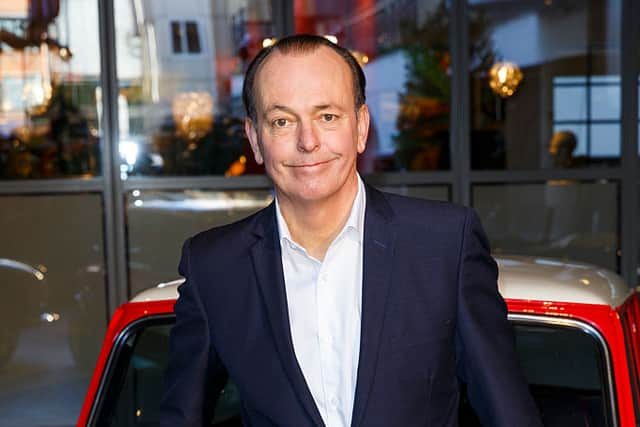Government urged to cut VAT on public EV charging to end ‘unfair’ two-tier system
and live on Freeview channel 276
The Government has been urged to cut VAT on the cost of public electric car charging or risk blocking its own ambition to persuade drivers to switch to EVs.
Campaigners say that the current system, where VAT at public chargers is four times higher than on a domestic charger, is creating an “unnecessary” barrier to the uptake of EVs, particularly among drivers without off-street parking.
Advertisement
Hide AdAdvertisement
Hide AdThey want the current 20% rate on energy at public facilities cut to match the 5% domestic rate which applies to drivers who charge at home.
Campaign group FairCharge, which is being led by TV motoring expert Quentin Willson, argues that cutting VAT will create a fairer environment for the estimated 38% of drivers who aren’t able to charge an EV at home.


Willson, who previously co-founded the FairFuel group, said the disparity in VAT rates “isn't just unfair, it's a policy mistake that will hinder EV take-up and impact on exactly those who we want to see enjoy the benefits of an EV”.
He added that owning an EV must be “affordable and practical for hard-pressed families and businesses”, but some Government decisions “have done nothing to help expand EV use beyond the wealthy”.
Advertisement
Hide AdAdvertisement
Hide AdThe campaign, which is being backed by the RAC, also wants to see fairer pricing at public charging points, where prices can range from free to as much as £240 for a full charge. It argues that reasonable pricing at public chargers will make it easier and more affordable for drivers without at-home charging, as well as making longer journeys more managable.
It also plans to monitor public and domestic charging tariffs, claiming without such scrutiny, there is a risk that public charging could become as expensive as filling up with petrol or diesel.
Sarah Winward-Kotecha, the RAC’s director of EVs, said: “There are many issues with public chargers such as cost, availability, reliability, speed of charging and ease of payment, which have the potential to either accelerate or slow down EV adoption depending on how they are handled. Our decision to support FairCharge is all about making sure that charging provision in all shapes and forms is both fit for purpose and fair.
“We also know from our research that drivers have concerns about going electric beyond charging, so we are pleased to see that FairCharge will be working to make driving an EV accessible to all as well ensuring the UK economy and society as whole benefit from the transition to electric driving.”
Advertisement
Hide AdAdvertisement
Hide AdAmong other measures the campaign wants to see are moves to ensure a widespread, reliable and easy to use network of high-speed chargers, and efforts to make buying EVs more affordable for all drivers through low-cost funding options for new and used models.
A Treasury spokesman said: “The UK is leading the way on the transition to net zero – and has reduced emissions faster than any other country in the G20 and continues to have the most ambitious climate targets for 2030.
“To drive the UK’s move to electric vehicles, we have provided over £2.5 billion to cut down purchase costs for drivers and to build the necessary infrastructure to support their usage, such as local on-street residential charging and targeted plug-in vehicle grants.”
